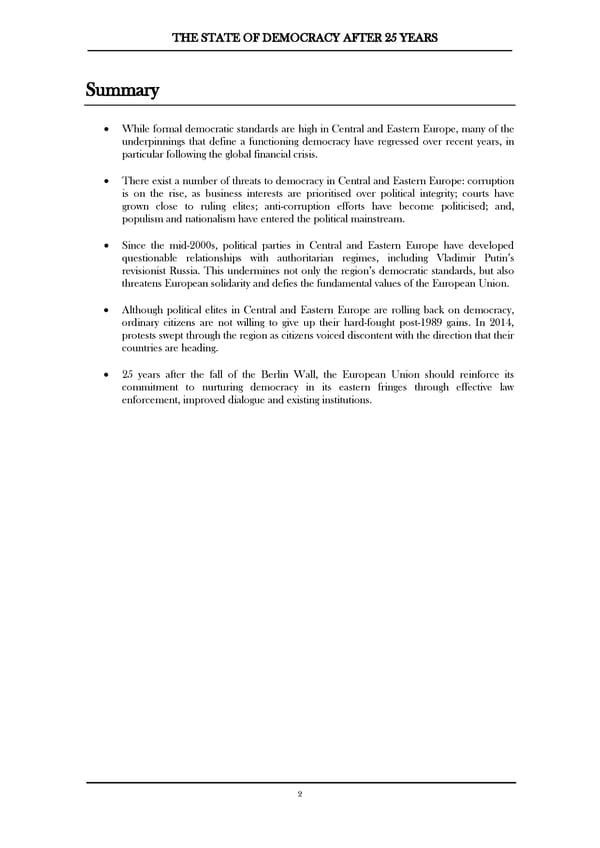THE STATE OF DEMOCRACY AFTER 25 YEARS Summary x While formal democratic standards are high in Central and Eastern Europe, many of the underpinnings that define a functioning democracy have regressed over recent years, in particular following the global financial crisis. x There exist a number of threats to democracy in Central and Eastern Europe: corruption is on the rise, as business interests are prioritised over political integrity; courts have grown close to ruling elites; anti-corruption efforts have become politicised; and, populism and nationalism have entered the political mainstream. x Since the mid-2000s, political parties in Central and Eastern Europe have developed questionable relationships with authoritarian regimes, including Vladimir Putin’s revisionist Russia. This undermines not only the region’s democratic standards, but also threatens European solidarity and defies the fundamental values of the European Union. x Although political elites in Central and Eastern Europe are rolling back on democracy, ordinary citizens are not willing to give up their hard-fought post-1989 gains. In 2014, protests swept through the region as citizens voiced discontent with the direction that their countries are heading. x 25 years after the fall of the Berlin Wall, the European Union should reinforce its commitment to nurturing democracy in its eastern fringes through effective law enforcement, improved dialogue and existing institutions. 2
 The State of Democracy After 25 Years Page 2 Page 4
The State of Democracy After 25 Years Page 2 Page 4